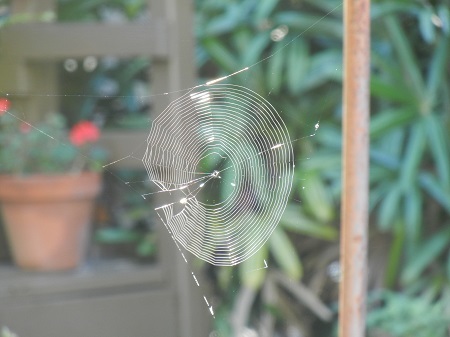"Why do we need nature?" I asked my MBA students. The answers varied -- "for food, water, entertainment, vacations, hiking, swimming." (What is your answer?)
When I suggested that we couldn't produce any single object or service without nature, they looked at me in disbelief, and some more vocal said that was not true. I invited them to name which were those things we could manufacture, or do, without needing the support of nature. "A cell phone" one quickly replied, waving it in his hand. "Well, not really," a colleague reflected, "it has metal, plastic..." They began to look around the classroom, puzzled. "But services don't need nature!," one defied. "They do," another answered. "Even if you walk to deliver a package, you depend on weather conditions that make it possible... "
When I designed a program to develop the 'sustainability mindset' I found it essential to include the topic of nature. Those of us living in cities or suburban areas are very much removed from the experience of nature, although it permeates all we do. Dairy comes from the fridge in the supermarket, meat comes in trays, vegetables come from a store. "What was your experience of nature this morning?" I asked one day. Some replied "I live in an apartment; no nature here." Others observed: "Well, me too, but I bought some flowers yesterday." Another said "I can see a tree out of my window." No one, interestingly, thought of the wood of the cabinets, the food in the fridge, or our own body. We are nature, aren't we?
Gail Whiteman, professor of Sustainability, Management and Climate Change in the Rotterdam School of Management in Netherlands set up her whole course outside the classroom, at a botanical garden. No power points, but lots of walks and dialogues. The students became very appreciative of their outdoor classroom. When the professor presented a case where the city would move the botanical garden somewhere else to use the well-located lot for a mall, the students exclaimed "No way!" They were unable to make a 'rational' decision because they had fallen in love with their new classroom. They wondered how other students, not having had the same experience might react. There is an old saying: What you understand, you care for. What you care for, you love. What you love, you protect. These students were ready to protect the botanical garden.
To this point, I recall a colleague teaching environmental studies who gave each student a shoe box with some worms at the start of the semester. The students opened the box with disgust. She asked them to take care of the worms during the course. They had to learn about their 'pets', how to feed them, what climate conditions they need, how they live, what their role is, etc. At the end of the course everyone absolutely LOVED their worms. They had understood how they and their worms were connected to each other in the larger ecosystem we share.
Professor Henrietta Onwuegbuzie, who teaches Community Impact Investing at the Lagos Business School, in Nigeria, observes the importance of tapping into the indigenous wisdom. Those entrepreneurs who come from the poorest communities have the highest rates of success. Why? Because they learn from their community, from their elders, they count on the indigenous wisdom. The indigenous way of knowing is earth-based; it is wisdom learned from observing nature and our elders, it is based on collaboration and relationships of mutual care; it is information taken in with all our senses, and with our gut. It is also non-verbal learning.
At a recent conference at Pace University, in the Wall Street area of Manhattan, a speaker brought basil leaves. She passed them to the audience, inviting them to experience the basil in its fullness: color, texture, smell, taste... and memories. Let me leave you with this reflection: What can a basil possibly teach us!? Think about it.
